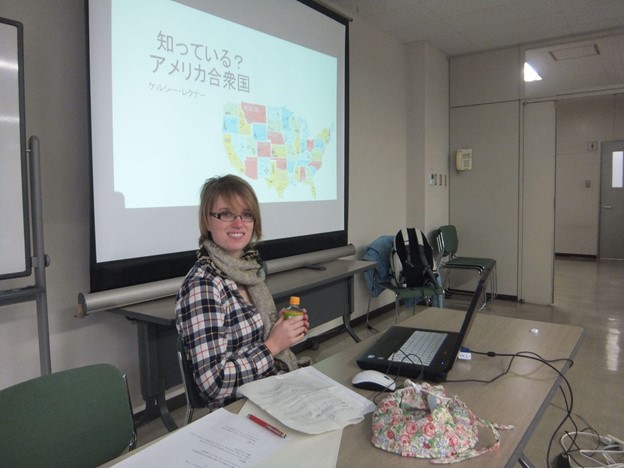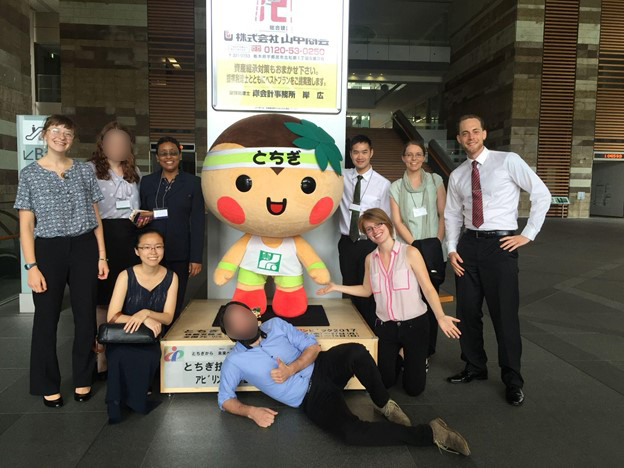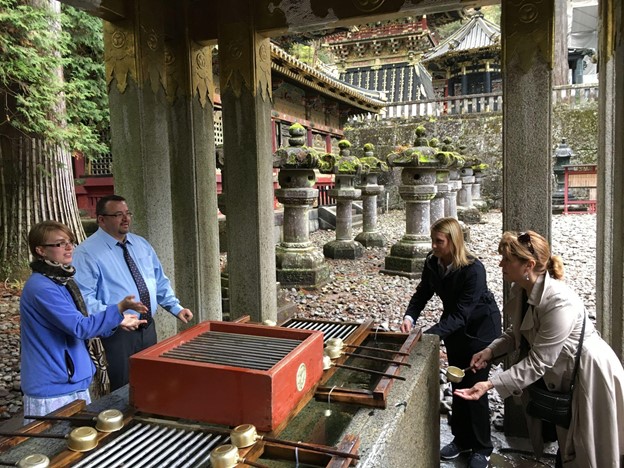The JET Program: Most people who have considered working in Japan have probably considered applying. While it is most known for the role of ALT (Assistant Language Teacher), roughly 8% of participants move to Japan as a CIR (Coordinator for International Relations). Although there is a wealth of information available for ALT applicants, there is relatively little targeting those aspiring to be CIRs. Doing a quick Google search shows that this status quo hasn’t changed much since I applied for the 2015 intake. I want to help change this.
Advising ALT applicants is perhaps a bit easier because their core duties and expectations are relatively clear and limited: assisting (usually) English teachers in schools. On the other hand, coordinating international relations is a very mixed bag. CIRs may have a much wider scope of duties depending on where they are posted. In my case, working at the Tochigi Prefectural Office, I was a government translator, interpreter, cultural presenter, event coordinator, blogger, business English instructor, project manager, sister state liaison, and head PA (Prefectural Advisor). However, some other CIRs I met were ALTs in all but name, and others were almost purely desk translators. While I was limited to traversing my prefecture (and occasionally Tokyo), others jetted off to other countries for work.
This makes it difficult to make a blanket statement of what aspects of the job you should promote yourself to. Therefore, try to make yourself seem as diverse as possible, and hone in on why you want the CIR job over any other job in Japan. These next categories are key.
Japanese Language Ability

This is tricky, as it can be dangerous to oversell and undersell yourself on your language ability. To be hired, all CIRs are expected to have at least an N2 level of Japanese. If you won an award in a Japanese program, studied abroad in Japan, or passed the JLPT, you’ll want to briefly highlight those experiences. However, the silver lining is that everyone applying for the CIR position is expected to have fantastic Japanese skills. Therefore, having great Japanese skills in and of itself does nothing to make you particularly stand out from the qualified CIR crowd. While it’s important to show why your Japanese is better than other applicants, don’t dedicate your SoP to merely a timeline of your Japanese studies.
The ideal tactic is to demonstrate what you can do with your Japanese. Aim to show that you accomplished or improved something, whether it was in a job, class, or social activity. JET wants to know if you’re competent enough to give a spectacular 90-minute presentation about your country to a school, or if you’re going to buckle under the pressure when interpreting between the governor and the Lithuanian ambassador.
Now, a note about the JLPT: it doesn’t matter if you have taken the JLPT or not–there will be a language component in the interview to assess you. Passing may get you to the interview stage, but once you’re there, it doesn’t matter how good you seem on paper; even if you passed N2 just by the skin of your teeth but still struggle with N3 material, you might not make the cut. I myself never took the JLPT until after JET.
Enthusiasm for Cross-Culture Relations

Promoting international relations inherently requires strong communication skills. However, there is still so much more to this than being able to speak, read, write, and listen to Japanese. Cultural competency covers more than just linguistic background, such as age and nationality. As a CIR, I spent a large chunk of my time making presentations for everyone from elementary school students to retired folks continuing their education, which required vastly different approaches depending on the audience. As a PA, I helped Tochigi JETs from around the world cope with communication problems with their schools and what to do when they were feeling culture shock.
This leads to my next point: No matter what you do in practice, as a CIR you will be, in some way, shape, or form, coordinating international relations. Plural. Odds are your city or prefecture won’t be stuck in a binational vacuum. Although I was posted to Tochigi because of their relationship with my home state of Indiana, I also handled interpretations between representatives from Hungary, pan-Africa, Britain, Belgium, and more. While Japan-related previous experience is obviously the most suitable to bring up, any kind of positive engagement with different cultures makes you a stronger candidate. The bottom line question to answer is, “What can you do to broaden Japan’s connections with the world?”
Future Potential

It is important to keep in mind that JET is not a career-track position. Your tenure is capped at five years, and no one is under the illusion that you will have this same job for longer. Yes, there are some cases of contracting organizations deciding to directly hire their JETs after their terms, and COVID-19 border closures ended up allowing some sixth-year JETs. However, this isn’t the standard course of events and should not be expected.
Remember also that JET is a government-sponsored program that is viewing you as a soft-power investment. Its goal is to help create the next generation of Japan-friendly professionals in the world. The whole point of this job is to foster cultural exchange as a first or next step in your career. Whether you become a government official, international lawyer, business leader, English teacher, or anything else, Japan hopes that you will look back fondly on your time in-country and will work to its benefit, locally or globally.
Therefore don’t be afraid to mention what you want to gain from JET for your future career and why it’s important for both you and Japan that you become a CIR. After all, JET is by definition the Japan Exchange and Teaching Program, a give-and-take experience. This can also show that you’re eager to learn and develop, which are crucial aspects of the job. On the flip side, do not go as far as saying, “I only plan on staying on JET for X years.” Keep those details vague, just as you would with any other job; you still don’t want to come off as a flight risk and potentially not even finish your first year.
Final Remarks and Useful Resources

As a final note, take everything I write here with a grain of salt. After all, I have never been on the JET hiring committee. I’m writing all of this based on my experiences from JET and through hiring positions in other jobs. Trust your gut, and also refer to information written for ALTs, because some of it is still sound universal advice. Prepare well, and be your own spin team.
JET Program Resources:
- JET Programme (Official website)
CIR-Specific Resources:
- Applying to JET as a CIR (Shinpai Deshou)
- The CIR Homepage (Forum)





2 Comments
Miriah
October 26, 2022 at 1:28 AMI’m currently applying to be a CIR. I was an exchange student for a year in Tochigi prefecture when I was in high school. I would also give tours of Nikko to other exchange students who were staying for shorter periods than me. I gave presentations on US culture in Japanese and that’s when my Japanese was really basic. It was challenging work but I loved it so much. I wonder what my odds of being placed in Tochigi are if I mention all of that in my SOP?
It’s so hard to find any information on anything related to CIR work. It was such a treat to not only find amazing information here but that you are a CIR working in Tochigi!
Kelsey Lechner
October 26, 2022 at 8:27 PMHi Miriah!
Thanks for the comment, and that’s great that you’re considering applying and have so much relevant experience! What you told me sounds like great information to put in your application, but unfortunately, it generally doesn’t influence placement much. There are a few things to consider with placements:
1) What positions are open during this cycle? You should be able to find how many CIRs are in each prefecture in documentation on the JET website, although it won’t show how many CIR positions are open for the year. For example, Tochigi Prefecture (assuming it’s the same) has only one English-region CIR position, so if that person isn’t leaving when you apply, that position will not be open, unless they have created a new position starting from the next cycle.
2) Contracting organizations can also make requests, and these are given more weight by JET than the individual applicants. For example, Tochigi Prefecture specifically wanted a CIR from Indiana (due to the sister-state relationship), and that’s how I got placed. If there were successful applicants from Indiana the year there’s a position open, they might be prioritized. From what I have heard, individual applicants’ location requests are more likely to be taken into consideration if there is a sister-city/state relationship with the desired placement or if there are family members in the desired placement, and then it circles back to point 1.